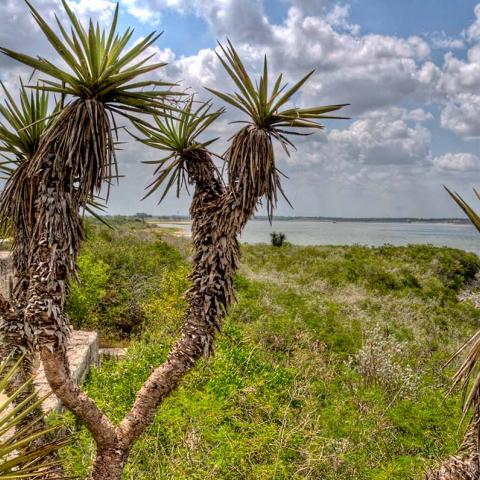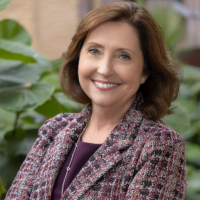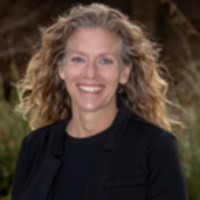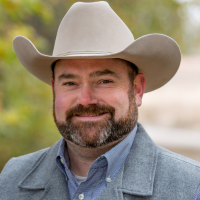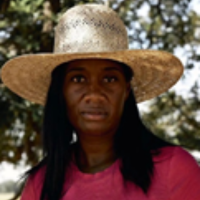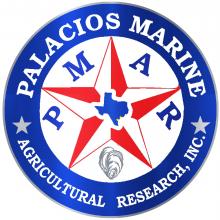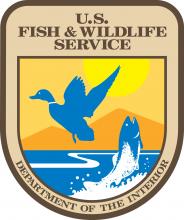Thank you for JOINing US!
OCTOBER 15-18, 2023 | CORPUS CHRISTI, TEXAS
The 77th Annual Conference was hosted by the Texas Parks & Wildlife Department. Thank you to all who joined us at the Omni Hotel in Corpus Christi, Texas, October 15-18, 2023.
The Annual Conference of the Southeastern Association of Fish and Wildlife Agencies is a forum for the exchange of ideas and critical information regarding the management and protection of fish and wildlife resources primarily in the southeast. The conference attracts over 500 representatives from state and federal agencies, citizens' organizations, universities, private wildlife research groups, fisheries and wildlife scientists, agency enforcement personnel, and other natural resource-related organizations.
Visit the Announcements/Important Dates section for updates.
Announcements & Important Dates
Please check back for important announcements regarding the 77th Annual Conference.
Register to Attend
Registration for the 77th Annual Conference is closed. This event has passed.
Pricing and Options
Register early to $ave! Rates will increase after September 1, 2023.
- Full Conference Registration: $400 ($450 after 9/1)
- One Day Registration: $225 ($275 after 9/1)
- Student Registration: $175 ($225 after 9/1)
What's Included
- The Full Conference Registration and Student Registration fee includes the following meals and social events: Welcome Reception on Sunday evening; Student/Professional Lunch on Monday (RSVP required); Tradeshow & Poster Social on Monday evening; Continental Breakfast Monday, Tuesday and Wednesday, coffee breaks daily, and the Awards Banquet on Tuesday evening.
- The One-Day Registration fee includes meals and social events on the day they are attending.
Cancellation Policy
Cancellations received by October 1, 2023 will be refundable less a $50 administrative fee. No cancellations received after October 1st, 2023 will be refunded but substitutions will be allowed. To request a refund, call 802-865-5202 or email info@delaneymeetingevent.com.
Questions?
Any questions or comments regarding registration or the conference, please call the conference office at 802-865-5202 or via email at info@delaneymeetingevent.com.
Travel & Lodging Information
The 77th Annual Conference will be held at the Omni Corpus Christi Hotel (900 North Shoreline Boulevard, Corpus Christi, Texas 78401).
Overnight accommodations are available to conference participants at the Omni Corpus Christi Hotel at a discounted group rate of $159/night + 15% tax. Reservations can be made directly by visiting the reservation link: https://www.omnihotels.com/hotels/corpus-christi/meetings/seafwa-annual-conference-2023-10142023
Reservation Deadline:
The group rate will be available until the cutoff date of Friday September 22, 2023, or until the block is full, whichever occurs first.
Please note: The Omni is sold out of rooms at the group rate for Saturday night only. There's still plenty of availability for Sunday, Monday, and Tuesday nights.
Federal Per Diem Room Block:
A limited block of rooms are available at the prevailing federal government per diem rate by visiting this link: https://www.omnihotels.com/hotels/corpus-christi/meetings/seafwa-annual-conference-2023-government-block-10142023. The federal per diem rate for Corpus Christi starting on October 1, 2023 will be $107.00. All current per diem room reservations will be updated to reflect this rate.
Overflow Accommodations:
We have arranged for an overflow block at the Holiday Inn Corpus Christi Marina Downtown, located three blocks from the Omni. We have a discounted rate of $150.00 plus 17% tax. The rate includes breakfast. Parking is available for $10.00/night. Accommodations include complimentary airport shuttle and WiFi.
Please make reservations online, or by calling 361-882-1700, by September 29, 2023.
Local Attractions
Corpus Christi offers popular attractions, outdoor experiences, a variety of hotels, cultural venues, shopping, and fresh local seafood. Our partners at Visit Corpus Christi have provided a custom guide to the area for conference attendees.
Schedule at-a-Glance
The following schedule of events is subject to change. Please check back for updates.
Plenary Session
Monday, October 16, 2023 | 8:15 am – 10:30 am
Innovative, voluntary, and partnership-based solutions for natural resource conservation challenges
Welcome - TPWD Executive Director, Dr. David Yoskowitz
Presentation of Colors - TPWD Law Enforcement Color Guard
Welcome Remarks - Corpus Christi Mayor Paulette M. Guajardo (tentative, confirmation pending)
Opening Plenary Remarks - TPWD Executive Director, Dr. David Yoskowitz
Panel Members:
Suzanne Scott, Texas State Director of The Nature Conservancy
Suzanne Scott will speak on TNC-TX’s ongoing efforts to steward unique landscapes, work in partnership with other organizations to acquire and protect landscapes of high conservation value, and expand efforts to protect sensitive aquatic species and their habitats through voluntary-based water transactions.
Joni Carswell, Texan by Nature CEO and President
Joni Carswell will speak on Texan by Nature’s mission to advance conservation that is beneficial to people, prosperity, and natural resources. Specifically, she will discuss an initiative to report on the conservation spending in Texas and the economic return on those investments.
Chad Ellis, Texas Agricultural Land Trust CEO
Chad Ellis will speak on efforts by the Texas Agricultural Land Trust to promote the conservation of open space, wildlife habitats, and natural resources on Texas’ private working lands. Specifically, he will discuss how his organization uses ecosystem services markets, conservation easements, and carbon sequestration to advance voluntary conservation actions on working private lands.
Kimberly Ratcliff, Business Owner (Farm to Freezer Beef) and Organizational Leader (100ranchers.org)
Kimberly Ratcliff will discuss how her organization, 100 Ranchers, unites private ag producers to not only promote and strengthen agricultural communities, but also to connect, collaborate, and access information and programs to foster exemplary land stewardship for compatible ag production and wildlife habitats.
Special Symposia
We’re pleased to announce the following organized symposia will be included in the program at the 2023 Southeast Fish & Wildlife Conference.
S-01. Beyond the Survey: Using Human Dimensions Data in Conservation
Monday, October 16 | 1:20pm - 4:20pm
Contact: Jessica Feltz, Conservation Social Scientist, Arkansas Game and Fish Commission, Jessica.feltz@agfc.ar.gov
Co-organizers: The SEAFWA Social Science Technical Committee
Overview:
Human Dimensions is a critical component to natural resource management and conservation efforts; and similar to biological or ecological research, human dimensions research requires a balance of the correct sampling design, methodologies, and analysis in order to best inform natural resource decision making efforts. Join the representatives of SEAFWA’s Social Science Technical Committee for an interactive discussion about the many facets of social science, such as data collection, analysis, interpretation, and integration in conservation and natural resource management.
This symposium will help attendees learn about human dimensions data applications, techniques, and opportunities for collaboration. This event will highlight examples from across the region that highlight topics such as social Science projects with a focus on methodologies beyond traditional surveys, human dimension study design considerations, quantitative social science studies, qualitative social science studies, unique or advanced analytical approaches for human dimensions data, and study participation recruitment efforts to improve response rates.
S-02. State Wide Forest Management and Planning
Monday, October 16 | 1:20pm - 5:00pm
Contact: Casey Phillips, Forester, NC Wildlife Resources Commission, casey.phillips@ncwildlife.org
Co-organizers: Dr. Joe Roise, NC State University; Dr. Chris Moorman, NC State University; Gary Burger, SCDNR
Overview:
The membership of the SEAFWA is faced with an ever-increasing demand to achieve wildlife habitat objectives in an efficient and fiscally responsible manner on the lands under their stewardship. Alternative forest management strategies (e.g., timber harvest vs. carbon storage) have the potential to impact habitat for common focal species differently and with varying degrees of financial offsets. The objective of this symposium would be to convey specific strategies and technologies that states are currently using to plan, evaluate, and improve forest management operations. We would be soliciting representatives from the member states to speak on forest management and could include additional speakers if there are relevant open submissions.
S-03. A Caribbean Community of Practice to Benefit People and Fish and Wildlife Resources
Tuesday, October 17 | 8:00am - 12:00pm
Contact: Miguel Garcia-Bermudez, Fish and Wildlife Administrator, US Fish and Wildlife Service, miguel_garcia-bermudez@fws.gov
Co-organizers: Amanda Sesser, Fish and Wildlife Service; Shannon Westlake, Fish and Wildlife Service
Overview:
Both, complex social and simplified natural scenarios characterize islands in the Caribbean region. The reduced ecological connectivity (natural or anthropogenic), the uniqueness of its endemic species, and centuries of natural resources exploitation coupled with the rich culture, have created conservation challenges that require equally complex and diversified approaches to safeguard and improve societal and natural conditions. The most common mechanisms to conserve fish and wildlife resources in this geography have been the creation of natural reserves and development of laws and regulations. However, an array of conservation successes and failures prompt the need to revisit the status and update actions to integrate lessons learned and discussing relevant and common issues and priorities—freshwater and climate change. There is great need and opportunity for working collaboratively to develop a timely interdisciplinary response to these natural and societal challenges. In this session, we will converse and explain how we are approaching this through a Caribbean Community of Practice with the overarching goal of benefitting people and natural resources.
S-04. Climate Services and Technical Support for State Fish and Wildlife Agencies
Tuesday, October 17 | 8:00am - 12:00pm
Contact: Dolly Na-Yemeh, Climate Adaptation Specialist, South Central Climate Adaptation Science Center, dolly.na-yemeh1@ou.edu
Co-organizers: Caitlin Rottler, South Central Climate Adaptation Science Center; Marina Tomer, USGS South Central Climate Adaptation Science Center; Paul Armsworth, Southeast Climate Adaptation Science Center
Overview:
The Symposium on Climate Services and Technical Support for State Fish and Wildlife Agencies aims to bring together experts from government agencies, universities and other stakeholders to share knowledge, experiences, and best practices in providing climate services and technical support to state fish and wildlife agencies. In addition, the symposium will provide a platform for discussions on the latest advances in climate science, tools, and technologies that can assist state agencies in understanding and adapting to the impacts of climate change on fish and wildlife.
The symposium will cover various topics related to climate services and technical support, including climate adaptation research, climate modeling, communication strategies, and species and habitat vulnerability assessments, including how these approaches can be incorporated into State Wildlife Action Plans. The symposium will also highlight successful case studies from across the geographic scope of the SE AFWA region that have provided climate services and technical support to inform their resource management decisions and actions.
S-05. Research Highlights of the USDA NRCS Feral Swine Control Pilot Program (FSCP)
Tuesday, October 17 | 8:00am - 11:20am
Contact: Mark Smith, Professor/Extension Specialist, Auburn University, mds0007@auburn.edu
Co-organizers: John M. Tomeček, Texas A&M University; Lacey Williamson, USDA NRCS; Mike Mengak, University of Georgia
Overview:
In response to the growing threat of feral swine to agriculture, native ecosystems, and human and animal health, the Feral Swine Eradication and Control Pilot Program (FSCP) was established under the 2018 Farm Bill and implemented jointly by the USDA Natural Resources Conservation Service (NRCS) and the USDA’s Animal and Plant Health and Inspection Service (APHIS). Total funding for the program was $75 million over the life of the 2018 Farm Bill split between APHIS and NRCS. NRCS obligated more than $33.9 million to local conservation partners via grants to develop feral swine control pilot projects in select portions of Alabama, Arkansas, Florida, Georgia, Hawaii, Louisiana, Mississippi, Missouri, Oklahoma, North Carolina, South Carolina, and Texas. Each pilot project consisted broadly of three coordinated components including feral swine removal by APHIS, restoration efforts supported by NRCS and assistance to producers for feral swine control. In addition to control programs, many local partners conducted monitoring and research activities to document and quantify the impacts of feral swine removal on improvements to agriculture, native systems, and human health within the context of their respective FSCP. While all projects focused on feral swine removal, individual projects were delivered based on local needs and resource concerns. These research and monitoring activities varied among pilot projects and included use of drones to measure and assess damage to agriculture production, monitoring of water quality in streams before and after feral swine removal, surveys of producers to determine the breadth and extent of damage, and camera surveys to examine wildlife response in the context of feral swine removal. This symposium will showcase the research and monitoring results from select FSCP projects.
S-06. Advancing Aquatic Connectivity Through Collaborations, Partnerships, and Research
Tuesday, October 17 | 1:20pm - 4:00pm
Contact: Shawna Fix, Aquatic Connectivity Teams Facilitator, Southeast Aquatic Resources Partnership (SARP), shawna@southeastaquatics.net
Co-organizers: Kat Hoenke, Southeast Aquatic Resources Partnership (SARP); Todd Ewing, Southeast Aquatic Resources Partnership (SARP); Kimberly Meitzen, Texas State University; Stephen Curtis, Texas Parks & Wildlife Department
Overview:
Aquatic habitat fragmentation has long been identified as a fisheries conservation issue in the Southeast United States due to the high prevalence of dams and road-stream crossings. Aquatic organisms depend on river and stream connectivity to forage and disperse their genetics. Watersheds with high levels of fragmentation often have lower levels of species resilience to anthropogenic and environmental stressors, i.e. flooding, drought, flow alteration, and water quality impacts. These barriers also pose a threat to human health as many of them restrict flow and cause an increase in flooding during high rain events. States across the Southeast have formed Aquatic Connectivity Teams (ACT) to collaborate on inventorying, prioritizing and removing or replacing barriers in their state. These ACTs work together to identify projects using the Southeast Aquatic Resources Partnership (SARP)’s Aquatic Barrier Inventory and Prioritization Tool (https://connectivity.sarpdata.com), apply for funding and educate the public and their own agencies on the importance of aquatic connectivity. The goal of this symposia is to learn from those partnerships as well as showcase aquatic organism passage research throughout the Southeast.
S-07. U.S. Geological Survey Science to Support State Agency Needs for Aquatic and Fisheries Management
Wednesday, October 18 | 8:00am - 11:20am
Contact: Suzanna Soileau, Outreach Coordinator, U.S. Geological Survey, ssoileau@usgs.gov
Co-organizers: Jenn Malpass, USGS Eastern Ecological Science Center; Andrea Ostroff, USGS Eastern Ecological Science Center; Ryan Boyles, USGS Southeast Climate Adaptation Science Center
Overview:
U.S. Geological Survey (USGS) scientists conduct cutting-edge research to provide resource managers the scientific information they need to protect, restore, and enhance our Nation’s fish and aquatic species and their habitats. This symposium will provide highlights of the breadth of USGS’s research related to fish and aquatic resources with a focus on how USGS research supports state managers. We anticipate presentations on topics such as species of conservation concern, effects of climate change, invasive species, disease, and environmental health.
S-08. SECAS Symposium: Southeast Conservation Lands of the Future – Collective Action Towards a Sustainable Landscape
Wednesday, October 18 | 8:00am - 12:00pm
Contact: Amanda Sesser, SECAS Coordinator, U.S. Fish and Wildlife Service, amanda_sesser@fws.gov
Co-organizers: Amanda Sesser, SECAS Coordinator and U.S. Fish and Wildlife Service, New Orleans, LA; Rua Mordecai, Southeast Blueprint Coordinator and U.S. Fish and Wildlife Service, Raleigh, NC
Overview:
The Southeast Conservation Adaptation Strategy (SECAS) partnership is working toward a vision of connected lands and waters that support thriving fish and wildlife populations and improved quality of life for people. In support of that vision, SECAS is a highly effective collaborative initiated by SEAFWA state agencies that provides a robust partnership-based platform for agencies, organizations, and initiatives to create and implement a shared vision of the Southeast – one that will sustain natural and cultural resources, people, and communities. This half-day symposium is an important convening step of a multi-tiered approach envisioned to engage diverse sectors of the economy in implementing this landscape vision. Speakers will address questions such as: How do we engage a wide range of conservation professionals and technical experts to develop and buy into a model of collective action? How do we ensure a vitality of life for people, including underrepresented communities, while meeting the need of fish, wildlife, plants, and their habitats? How can we better incorporate working lands in meeting both ecological and economic outcomes? Can we use the Southeast Conservation Blueprint for siting green energy projects that maintain a connected landscape of lands and waters?
The symposium will be moderated by previous fellows from Minorities in Natural Resource Conservation (MINRC).
Following the presentations, a panel discussion comprised of select presenters, SECAS Steering Committee Members, and MINRC fellows will discuss future directions for the SECAS partnership, focusing on long-term sustainability of the southeastern landscape. This panel discussion will set the stage for continued dialogue within the partnership to guide future strategic direction, identify opportunities for voluntary, landscape-scale collaboration, and address barriers for working across organizational boundaries.
Poster Session
Monday, October 16 | 5:00 PM – 6:00 PM
P-01: A comparison of Waterbird Populations in Tidal Broken and Tidal Functional Antebellum Rice Field Impoundment using Uncrewed Aircraft System (UAS) at Tom Yawkey Wildlife Center, South Carolina
AUTHORS:
Akshit R. Suthar1, Mark A. McAlister2 and Jamie Dozier2, James T. Anderson1
1 James C. Kennedy Waterfowl and Wetlands Conservation Center, Belle W. Baruch.
Institute of Coastal Ecology and Forest Science, Clemson University
2 Tom Yawkey Wildlife Center, South Carolina Department of Natural Resources.
ABSTRACT:
Coastal South Carolina is known for its Antebellum (pre-American Civil War) rice field impoundments providing crucial waterbird habitats. Accurate quantification of waterbird uses of these impoundments is vital for effective conservation strategies. Today, almost 95,505.81 ha of these rice fields are mapped, with over half abandoned or no longer fully impounded. The remainder is managed mainly for wintering waterfowl. This preliminary study compared waterbird counts and species diversity between a tidal broken (TB) and a tidal functional (TF) impoundment. We used a DJI Phantom 4 RTK drone with a high-resolution camera to survey impoundments at the Tom Yawkey Wildlife Center in Coastal South Carolina.
The initial findings of this study reveal substantial differences in waterbird densities and species diversity between the two impoundment types. The TF impoundment exhibited a notably higher waterbird count, totaling 3,779 individuals, with 14 species. Additionally, TF impoundment showed a greater variety of waterbird functional groups, including wading birds, waterfowl, and shorebirds. The TB impoundment displayed a substantially lower waterbird count, with only 18 individuals from 4 waterbird species. Within TB habitats, only the wading bird functional group was observed.
Preserving and managing TF impoundment is crucial to support diverse waterbird communities. The study demonstrated the effectiveness of UAS technology in accurately identifying and quantifying waterbird species. These findings contribute to understanding waterbird ecology and highlight the need for conservation and management strategies to protect TF wetland ecosystems. The results have implications for wetland restoration and guide management practices for the long-term sustainability of waterbird populations in coastal South Carolina.
P-02: A Systematic Review of the Flora and Fauna at the Apalachicola National Forest
AUTHORS:
Herbert Franklin Jr.1 and Dr. Aavudai Anandhi2
1College of Agriculture and Food Sciences, Florida Agricultural and Mechanical University
2Biological Systems Engineering, Florida Agricultural and Mechanical University
ABSTRACT:
Apalachicola National Forest is one of Florida’s five critically concerning areas since the state’s changing climate poses a threat to its rich biodiversity. The objective of this study is to do a meta-analysis of the Flora and Fauna at the Apalachicola National Forest and to examine the effects of climate change and land use as it pertains to the plants and wildlife of the forest. Meta-analysis from nearly 200 articles reveals that red-cockaded woodpeckers (fauna) are declining in population due to the loss of live pines suitable for cavity excavation. Similarly, the longleaf pine (flora) is the most threatened ecosystem and has been driven by natural fire regimes, resulting from forest fire protection policies implemented during the 1920s. The environmental factors influencing the flora and fauna in the ANF are synthesized by means of envirograms. Envirograms give the flora and fauna relationship that is fundamental to having a continuous productive, rich, and healthy ecosystem. The findings from the study help to incorporate experienced knowledge in natural resource conservation and management is crucial to preserving the Flora and Fauna of the Apalachicola National Forest and the local goods produced from it. Moreover, it could serve as a re-evaluation tool and assessment analysis to engage policymakers and consider the human ecological footprint that is altering the climate.
P-03: Abundance of Black-throated Green Warblers (Setophaga virens) and Acadian Flycatchers (Empidonax virescens) on a mosaic of regenerating clear cuts and severity of Hemlock Woolly Adelgid (Adelges tsugae) in Central West Virginia
AUTHORS:
Christian M. Harris, Division of Forestry and Natural Resources, West Virginia University, 330-831-8142, cmh0105@mix.wvu.edu
Robert M. Ryan, Division of Forestry and Natural Resources, West Virginia University, 541-864-9687, rmr00023@mix.wvu.edu
Christopher M. Lituma, Division of Forestry and Natural Resources, West Virginia University, 304-293-7473, cml0017@mix.wvu.edu
ABSTRACT:
Bird species associated with the presence of mature stands of Eastern hemlock (Tsuga canadensis) have experienced ongoing population declines partially due to the spread of the invasive forest pest hemlock woolly adelgid (HWA). The continuing spread of HWA throughout the Appalachians poses a significant threat to Eastern hemlock obligate and associated species. Research on avian species' abundance and distribution within infestation zones is needed to further understand the role of HWA in population changes and shifts in distribution patterns. My objectives are to (1) determine the effects of landscape configuration in response to clear cuts on timber properties and (2) HWA infestation effects on abundance and distribution patterns of Black-throated green warblers and Acadian Flycatchers. The data for this study was collected on Weyerhaeuser timber properties in Greenbrier, Nicholas, and Fayette counties as well as the Monongahela National Forest in West Virginia in collaboration with the WVU ornithology lab. To assess Black-throated green warbler and Acadian Flycatcher abundance, data was compiled from 500 point count surveys conducted from 2021– 2023. One hundred meter vegetation surveys were taken at each point count location at 0, 120, and 240 degrees with tree diameter at breast height (DBH) recorded at point center as well as at 70 meters along each transect. Additionally, during the 2023 field season, whenever Eastern hemlock occurred within 20 meters of these DBH measures, examination of hemlock needles for evidence of HWA infestation and infestation severity were conducted. Moving forward I hope to model how infestation and stand age relates to Black-throated green warbler and Acadian Flycatcher occupancy and abundance.
P-04: Assessing the influence of habitat characteristics and brood parasitism on wood duck next box use and success
AUTHORS:
Jillian Murphy and Andrea K. Darracq, Murray State University
ABSTRACT:
As with most avian species, we have seen declines in waterfowl species largely driven by habitat loss. Population stability of waterfowl depends on breeding success, which is influenced by the availability and quality of essential resources used during the breeding season. Given the importance of breeding success, management for waterfowl is often implemented within ecosystems including moist soil management, planting food plots, and construction of artificial nesting boxes. Wood ducks (Aix sponsa) are one waterfowl species that respond particularly well to the construction of artificial nest boxes. Scarcity of suitable nest sites over parts of the wood duck's range justifies the use of artificial nest boxes to establish and maintain populations. Each artificial nesting box requires maintenance through time to ensure continued use and nesting success. The objective of our study is to monitor the use of artificial nesting boxes by wood ducks in the Land Between the Lakes NRA to determine the habitat attributes that influence nest success and productivity and assessing interactions of these variables with nest parasitism. Trail cameras will be placed in 30 wood duck boxes by attaching the cameras to the top of the nest boxes in February/early-March 2023 and again in 2024. We will be placing half of the cameras in boxes with high success rates and half in boxes with low success rates based on data that has been collected by the Kentucky Department of Fish and Wildlife Resources. We will monitor the nests until the birds have fledged and determine nest success, nest productivity, and nest parasitism rates.
P-05: Burned soil does not impact detection or consumption of seed by granivorous rodents
AUTHORS:
Emma Ainsworth, Oklahoma State University
Dr. Allyson Degrassi, Shenandoah University
ABSTRACT:
The occurrence of intense wildfires has increased in recent years, particularly in areas plagued by drought. This increase in the frequency of wildfires has provided ecologists the unique opportunity to investigate species survivorship and direct mortality among various taxa, but less is known about how wildfires affect organismal behavior. Particularly, the ability to locate resources required for survival, growth, and reproduction, such as food, may be diminished as a consequence of wildlife. Many rodents and other granivorous animals are seed dispersers which are important for forest health and range. They rely on their ability to detect seeds in various soil types for consumption. By changing the soil composition, wildfires have the potential to impact the ability for rodents and other granivores to detect and consume seeds, which may indirectly and negatively impact forest regeneration. This experiment tested the effects of burned soil on the ability for rodents to detect seed. In hardwood dominated forest at Blandy Experimental Farm in Boyce, VA, we randomly set foraging trays with 3g of sunflower seed in 1L of soil (i.e. top-soil or sand) from four different conditions: 1) unburned top-soil, 2) unburned sand, 3) burned top-soil, and 4) burned sand. Animals were allowed to forage ad libitum for approximately 12 hours overnight before foraging trays were collected and seed was re-weighed to calculate the GUD from each treatment and control. There was no significant difference between burn state, and no significant difference between soil type. This data can be applied to fire ecology management techniques to improve the techniques used to manage for native land.
P-06: Canyon Extraction to Support Bigtooth Maple Conservation
AUTHORS:
Kelsi L. Schwind, Duane German, Amie Treuer-Kuehn
ABSTRACT:
The Landscape Ecology Program provides state-wide, ecological data to support the conservation actions of the Texas Parks and Wildlife Department. Currently, the Landscape Ecology Program is generating geospatial data to identify canyons in the Texas hill country to map Bigtooth Maple-dominated plant communities.
Bigtooth Maple communities in the Texas hill country are imperiled, and their distribution is poorly understood. Previous research indicates this species prefers isolated, steep-limestone canyons, but more locations must be identified to make informed conservation decisions. The Landscape Ecology Program has generated a workflow to extract canyons using digital elevation data for the purposes of I) identifying potential canyon features within the species’ range, II) predicting Bigtooth Maple communities using abiotic data, and III) determining priority sites for ground truthing and on-the-ground conservation.
Digital elevation models were obtained from the Texas Natural Resources Information System to generate slope maps. Landform feature maps were then created. Valley and stream features were derived to determine the bottom of potential canyons. If these features were within canyon walls meeting a specific slope threshold, adjacent slope features were aggregated to ensure the entire canyon was captured. The features were then split by their respective watershed.
The workflow successfully extracted canyons within the pilot area of the hill country. Future work will use these canyons to model which are most likely to have Bigtooth Maples using current observation data. This information, along with ground truthing, will help facilitate the next steps for conservation actions by Texas Parks and Wildlife for these unique communities.
P-07: Color preferences of two species of southeastern forest lizards: the Five-lined Skink (Plestiodon fasciatus) and the Little Brown Skink (Scincella lateralis)
AUTHORS:
Lexi Baker, Makayla Baker, and Mark Paulissen
ABSTRACT:
Skinks are important components of the fauna of southeastern forests as they are predators of a variety of arthropods and prey for higher level predators such as snakes and birds. They use a combination of olfaction, vomerolfaction, and vision to find food and mates and to detect predators. The chemical senses of skinks have been well-studied, but virtually nothing is known about their visual abilities. We studied the color preferences of two species of southeastern forest skinks: the Five-lined skink, Plestiodon fasciatus, a brightly colored species in which adult males develop orange coloration during the breeding season and neonates have bright blue tails; and the Little brown skink, Scincella lateralis, in which adults of both sexes as well as neonates are plain brown in color. Lizards were subjected to a series of trials in which they had to escape under one of two retreats, each of which was associated with a different background color. Preliminary data show adult P. fasciatus prefer to escape to a retreat associated with an orange background (vs. a brown one) whereas adult S. lateralis showed no preference for retreats associated with either orange or brown background. Additional trials with neonate lizards will be conducted to determine if these trends are innate or modified by experience.
P-08: Creation and Deployment of a Novel Tool for Crocodilian Snout Opening
AUTHORS:
1) Miriam Boucher: James C. Kennedy Waterfowl and Wetlands Conservation Center, Belle W. Baruch Institute of Coastal Ecology and Forest Science, Clemson University.
2) Thomas Rainwater: Belle W. Baruch Institute of Coastal Ecology and Forest Science, Clemson University; and The Tom Yawkey Wildlife Center.
3) Luis Sigler: Dallas World Aquarium
4) James T. Anderson: James C. Kennedy Waterfowl and Wetlands Conservation Center, Belle W. Baruch Institute of Coastal Ecology and Forest Science, Clemson University.
ABSTRACT:
Crocodilians have diverse snout shapes ranging from the long and narrow snouts of the piscivorous gharial (Gavialis gangeticus) to the broad snout of the American alligator (Alligator mississippiensis). In addition, crocodilians possess the strongest bite of extant animal species, with recorded values exceeding 13,000 newtons of force for alligators. This pressure poses a challenge for managers, veterinarians, and researchers as working in and around crocodilian snouts comes with increased bite risk. Researchers, managers, and veterinarians must access the oral cavity of crocodilians to perform veterinary procedures, health assessments, hook removals, and for data collection. Conventionally, round polyvinyl chloride (PVC) or metal pipes keep crocodilian snouts open for such procedures. These short sections of opaque pipe can cause oral irritation, obscure the palate and tongue, and restrict access to the oral cavity and palatal valve. In conjunction with a current project investigating the alligator diet in the southeastern United States, we identified a need to create a more efficient tool to allow safer and more direct access to the oral cavity. In collaboration with the Dallas World Aquarium, we adapted a fixed acrylic snout opener design. We built a novel snout opening device that is nonplastic and adjustable to accommodate different gape sizes. The device allows for safe positioning within the mouth, includes safety considerations for device failure, and is adaptable to both widen and collapse the gape of the mouth. We have successfully deployed the device on 35 American alligators ranging in size from 141 – 329 cm in total length. We are working to perform strength tests to determine maximal force values for the device. Our device is a novel approach that is replicable and applicable for veterinarians, other researchers, and managers who may need access to the crocodilian oral cavity.
P-09: Digital Photography Identification System for Crawfish Frog Individuals
AUTHORS:
Kayleen Sugianto, Primary author
Kaleb Banks, Graduate student mentor
ABSTRACT:
Individual identification of various animals has helped researchers estimate population numbers, identify environmental threats, and study behavior; however, the methods to do so traditionally are invasive—including visible implant elastomers (VIE) and toe-clipping. Practices are categorized as invasive when factors negatively affect the individual. VIE are tag injections that affect the health of the individual and toe-clipping immediately reduces the amphibian’s locomotor performance. A solution for individuals to be identified without using invasive marking methods would be to use photo ID software. Two case studies used software to effectively identify individuals in Thornicroft's giraffes and Jollyville Plateau salamanders using this method. In this study, we will investigate the effectiveness of photographic identification for individual identification of crawfish frogs (Lithobates areolatus) based on their dorsal pattern of spots. This species has experienced a decline in its populations due to human pressures on its habitat and it is important to assess its population size. The frog has a dorsal side with dark spots encircled by lighter colored rings. The photographic mark-recapture (PMR) method will be tested for effective individual identification using Wild-ID as the software that will evaluate each of the dorsum side photographs. The images will then be automatically compared and separated by the computer to select the best match in patterns. I will test if this method is successful in collecting individual identification results and, therefore, could be applied as a research technique for studies of the demographics of threatened crawfish frog populations in Oklahoma. Photographic identification is predicted to have a high success rate, meaning that in the future we can use this method exclusively to allow for observing the species’ status, identification in a non-invasive fashion, and improving on habitat management and conservation.
P-10: Modeling Age of Largemouth Bass (Micropterus salmoides) of Northeastern Oklahoma Reservoirs Using Fish Mass, Total Length and Otolith Mass
AUTHORS:
Matthew R. McElroy, Michael J. Shaughnessy Jr. - Department of Natural Sciences, Northeastern State University
ABSTRACT:
Largemouth Bass (Micropterus salmoides) are a widely sought after and popular game fish that is commonly stocked in Oklahoma reservoirs. Significant research has gone into determining growth factors and age of the species in order to understand and utilize life history traits for increased fish production and efficient population management. Examining otolith accretion rings has been the most accurate and common way in determining fish age but at the cost of harvesting the fish. To reduce fish kill associated with management related age-determination of populations, we attempted to determine if a relationship between age, otolith mass and external measurements not previously examined exists for this species. Largemouth Bass were collected from various man-made reservoirs located in the Northeast region of Oklahoma. Fish were caught by means of electrofishing in the spring of 2023. Fish length and mass were recorded. Ages of fish were determined by counting otolith accretion rings and otolith mass were recorded as well. Otolith mass, fish mass and fish length were all associated with fish age. The ability to accurately estimate fish age using non-lethal methods provides vital population and life history data while not impacting the existing populations.
P-11: Effects of Leaf Diversity on Aquatic Invertebrate Abundance and Diversity in Ponds
AUTHORS:
J.D. Flores, Dr. Julia Earl - Louisiana Tech University
ABSTRACT:
Aquatic invertebrates are an important food source for many species of wildlife, including fish, birds, amphibians, reptiles, and mammals. Pond ecosystems are an essential habitat for many aquatic invertebrates. Leaf litter plays an important role in these ecosystems, because it provides a source of nutrients and shelter from predators. The leaves that fall into ponds come from several native and non-native tree species, which can differ greatly in physical and chemical characteristics. These characteristics are known to affect the abundance and diversity of aquatic invertebrates, but not much is known about how pond invertebrates are affected by leaf diversity. This study examines whether leaf diversity affects aquatic invertebrate abundance and diversity in ponds. For this experiment, we collected senesced leaf litter from 20 different tree species found in Louisiana. From the leaf litter collected, we created leaf mesh bags, which contained 3, 5, 7, or 9 leaf species to create different levels of leaf diversity. We then put the leaf mesh bags into three ponds located in northern Louisiana in February 2022. One third of the mesh bags were pulled from the ponds after one month, two months, and four months. In the 129 leaf mesh bags retrieved, we found 1,353 individual invertebrates, consisting mostly of isopods and chironomids (i.e., non-biting midge larvae). Preliminary results show that leaf litter species richness influenced aquatic invertebrate abundance after one and four months. The most common effect was lower invertebrate abundance in leaf bags with the highest leaf litter richness. These results indicate that pond invertebrates are likely affected by the diversity of trees surrounding the ponds. Understanding these effects will provide information for forest management near ponds and for the creation of new ponds to support healthy and diverse aquatic invertebrate communities.
P-12: Ex situ conservation of imperiled plant species in the Southeastern United States
AUTHORS:
Laurie Blackmore*, Emily Coffey*, John Evans, Jason Ligon | Southeastern Center for Conservation at the Atlanta Botanical Garden
ABSTRACT:
The Atlanta Botanical Garden has more than 30 years of experience in conserving and recovering rare and threatened plant species through research, propagation, collaborative restoration, and habitat management. The Garden protects the natural heritage of one of North America's most biodiverse regions by conserving imperiled species and natural communities across the southeastern United States, the Caribbean, and Ecuador. Through its Southeastern Center for Conservation (SECC), Atlanta Botanical Garden advances the science of conservation through research, collaborations, and native species recovery programs that include conservation collections at the Garden and applied conservation activities that support the preservation of species in their native habitats. Conservation programs, training, and capacity building derived from the activities of the SECC support the Garden’s commitment to serving the community's needs and connecting people and plants.
ABG specializes in ex-situ collections management and propagation techniques from field to lab to nursery production of imperiled species. The SECC works to address the urgent need to protect imperiled species across the southeastern states in the US in situ and ex-situ conservation, conservation horticulture, restoration and augmentation, and seed banking. One of the primary tools utilized by ABG is the diversification of ex-situ conservation collections, with extensive living collections tracked by maternal line, seed bank (conventional and cryobank), micropropagation, and tissue and DNA banks. The objectives of our ex-situ collections focus on creating and maintaining genetically diverse collections of the highest conservation value possible, developing and implementing best practices in plant conservation for botanical garden collections, discovering new ways to effectively preserve plant germplasm over the long term or in perpetuity, and collaborating with local and international partners to fill living plant conservation collections’ gaps in ex-situ, inter-situ, and in-situ settings.
P-13: Five Oaks Ag Research & Education Center: A Training Program for Early-Career Waterfowl Habitat and Wetland Management Professionals
AUTHORS:
Ryan J. Askren, Five Oaks Ag Research and Education Center, Humphrey, Arkansas, 72073, USA; raskren@5-oaks.com
Douglas C. Osborne, University of Arkansas, College of Forestry, Agriculture, and Natural Resources, Division of Agriculture, Arkansas Agricultural Experiment Station, Five Oaks Ag Research and Education Center, Monticello, Arkansas, 71656, USA; osborne@uamont.edu
ABSTRACT:
The intersection of wetland and waterfowl management is complex—requiring skilled land managers conversant in hydrology, wetland plant identification, soils, entomology, forestry, waterfowl ecology. In addition, technical skills are needed for operating heavy equipment, herbicide application, and water management. While undergraduate programs provide a firm foundation in ecology, recent graduates often do not have the technical skills necessary to move into a land manager role without further training. Wetland and waterfowl managers are not made in the classroom—they are trained in the field. To facilitate this training, Five Oaks Duck Lodge partnered with the University of Arkansas System to establish the Five Oaks Ag Research & Education Center (FOAgREC). The FOAgREC provides post-baccalaureate students with applied learning opportunities for transferring principles learned in the classroom to on-the-ground land management. To administer this training, the University of Arkansas at Monticello offers a two-semester, Graduate Certificate in Waterfowl Habitat and Wetland Management. This program offers a full scholarship to four students annually. Students spend on average 75% of their time in the field working with FOAgREC land managers. They choose 18 credit hours from a list of graduate field courses in wetland ecology, science-based decision making, land and lodge management, farm applications in land management, among others. Five Oaks provides 8,000 acres of outdoor laboratory space for teaching and research, including a 12-bedroom dormitory, with full living accommodations, computer stations, and a research lab. The next generation of wetland managers will face unprecedented challenges as demands for improved wetland health and associated ecosystem services increase in the face of climate change and other environmental stressors. Therefore, the principal objective of FOAgREC is to help develop the next generation of land managers by refining and improving their technical skills needed for successfully managing our wetland resources.
P-14: Ingestion of Microplastics by Louisiana Waterfowl
AUTHORS:
Hailey Stroderd, Garrison Lowder, Katie Redman, Sarah Bollinger, Taylor Carnes, Emily Curry, Andrew Dollar, Emilee Doyle, Aspen Frazier, Thomas Jackson, Kaiden Morace, Nicolas Vaccaro, Eli Watkins, and Terri Maness
ABSTRACT:
Microplastic debris is a pervasive and widespread global pollutant found in oceans, estuaries, and freshwater systems. The Gulf of Mexico (GoM) has particularly high concentrations of microplastics, as it houses the majority of plastic manufacturers in the United States. To develop effective mitigation strategies and policies, it is crucial to gain a comprehensive understanding of the risks that microplastics pose to wildlife. Ingesting plastics can harm the gastrointestinal tract (GI), hinder nutrient absorption, and result in the death of wildlife. However, our knowledge regarding the occurrence and quantity of plastic ingestion by birds in the GoM, specifically in freshwater systems, is limited. We are investigating ingestion of microplastics by waterfowl in Louisiana. To date, no one has investigated microplastic ingestion by waterfowl in the Gulf of Mexico region. We predicted that feeding mode (dabbling vs diving) would influence the incidence and quantity of ingested microplastics. We examined the GI tracts of ducks harvested by hunters in Louisiana during the 2013-14 hunting season for the presence of microplastics. The data collected encompassed plastic types (fiber, film, foam, nurdle/industrial, or fragment), microplastic quantities, and plastic colors. Preliminary findings suggest that diving species were more prone to ingesting industrial plastics, whereas dabbling species exhibited a higher occurrence of microplastic ingestion. Our results will supply crucial information about the impact of plastics on Louisiana's aquatic systems and serve as a foundation for evidence-based mitigation and management strategies.
P-15: Mangrove restoration prioritization to support bird habitat in the U.S. Virgin Islands
AUTHORS:
Julia Plotkin, U.S. Virgin Islands Division of Fish and Wildlife, University of the Virgin Islands
Dr. Nicole Angeli, U.S. Virgin Islands Division of Fish and Wildlife
Dr. Sean Kelly, U.S. Virgin Islands Division of Fish and Wildlife
ABSTRACT:
Wetlands are highly productive systems providing valuable habitat for communities of fish and wildlife species that rely on wetlands for feeding, breeding, resting, and nesting. In the U.S. Virgin Islands (USVI), a variety of migratory and resident birds, such as egrets, pelicans, herons, and kingfishers, are reliant on the haven that mangrove wetlands provide. However, increasing development, anthropogenic pollution, and tropical storms continue to threaten the remaining mangrove forests and in turn, the bird populations. Mangrove restoration is critical to supporting avian communities of the USVI but inherently complex due to social, ecological, and economic factors. A ranking matrix was created to effectively consider social, ecological, and economic inputs in prioritization. Mangrove health assessments were designed in consultation with researchers at the University of the Virgin Islands to complement long-term mangrove monitoring data. Bird surveys were standardized to historical bird census data from established conservation groups and experts. Feedback and input were solicited during stakeholder meetings from private citizens, landowners, and refuge managers. Here, the Division of Fish and Wildlife presents this inclusive process and resulting restoration plans for select priority mangrove restoration sites. These habitat restoration blueprints provide a valuable product vetted by a diverse group of stakeholders from academia, the private sector, the local community, and the government.
P-16: Movement ecology of a reintroduced Eastern elk herd
AUTHORS:
Jamie S. Benn, Caesar Kleberg Wildlife Research Institute, Texas A&M University-Kingsville
Braiden A. Quinlan, Department of Fish and Wildlife Conservation, Virginia Polytechnic Institute and State University
Jacalyn P. Rosenberger, Virginia Department of Wildlife Resources
W. Mark Ford, U.S. Geological Survey, Virginia Cooperative Fish and Wildlife Research Unit, Blacksburg, VA
Michael J. Cherry, Caesar Kleberg Wildlife Research Institute, Texas A&M University-Kingsville
ABSTRACT:
Reintroduction of extirpated species is an important tool in wildlife management. Successful efforts often require an understanding of exploratory movements and dispersal as these processes influence how populations colonize new areas. For many reintroduced populations, their movement and resource selection often are poorly studied but are important for understanding their post-reintroduction distribution. We evaluated the movements of a reintroduced elk (Cervus canadensis) population and successive generations in southwestern Virginia from June 2012 through November 2022. Using dynamic Brownian bridge movement models, we identified home ranges as the first area where an elk spent at least 30 days. We describe excursive movements as occasions when an elk was outside of the home range for at least 24 hours. We then evaluated if resource selection changed when elk moved outside of their home range using step selection functions. We analyzed movement data from 91 elk during the 10-year period and observed 342 excursive movements (338 exploratory movements [round trips outside the home range], 4 dispersals [one-way trips establishing new home ranges]). Most excursions occurred in May and June but were not influenced by age or sex. Overall, elk selected lower elevations, hardwood forests, and developed areas. Familiarity with an area increased elk selection for oak forests, developed areas and non-mined open land whereas in unfamiliar areas selection against mines decreased. By identifying patterns and developing a better understanding of how reintroduced species explore their environments, our results can inform and improve future reintroduction efforts, identify landscape attributes that facilitate or stall expansion, and support sustainable wildlife management.
P-17: Novel Method for Measuring Internal and External Tree Cavity Dimensions for Nesting Wood Ducks
AUTHORS:
CINDY L. VON HAUGG, James C. Kennedy Waterfowl and Wetlands Conservation Center, Clemson University
JAMES T. ANDERSON, James C. Kennedy Waterfowl and Wetlands Conservation Center, Clemson University
ABSTRACT:
The intensity and resource requirements of tree cavity surveys and measuring internal and external cavity dimensions have thwarted our ability to study habitat selection by cavity-dependent species. The primary difficulty stems from the need to climb trees, which omits the ability to measure cavities on limbs or in trees unsafe to climb. To bridge this gap, we developed a method to monitor and take external and internal cavity dimension measurements from the ground. Our approach used a device devised of a 1) telescopic pole; 2) wireless cavity inspection camera with a monitor; 3) fishing rod and reel; and 4) weighted reference scale that allows an object of known length to be viewed and recorded inside the cavity. We tested our method using simulated cavities (n = 20), assessed accuracy by comparing the estimated and actual measurements and evaluated precision using a paired t-test between 2 observers. The average difference (± SE) between estimated and actual measurements (n = 40) for entrance width, entrance height, platform width, platform length, and platform depth were -0.88 (SE = 0.89) cm, -0.85 (SE = 1.10) cm, -0.06 (SE = 3.65) cm, -0.96 (SE = 3.15) cm, and -0.50 (SE = 2.06) cm, respectively. Paired t-test results between observers showed only a difference in means for platform depth (t = -2.64, df = 19, P = 0.016). The time to complete a single cavity survey in the field (n = 37) averaged 12.2 (SE = 6.9) min. Although this method was founded to assess cavity suitability for wood ducks (Aix sponsa), it can be applied to cavities with entrance dimensions ≥4 x 4 cm and depths ≥4 cm. This method increases the practicality and efficiency of surveys while also increasing accessibility and the accuracy of cavity measurements.
P-18: Paving the Way for Effective Plant Conservation
AUTHORS:
Carrie Radcliffe, M.S., Conservation Partnerships Manager, Southeastern Plant Conservation Alliance and Atlanta Botanical Garden
Sarah Norris, M.S., Conservation Partnerships Assistant, Southeastern Plant Conservation Alliance and Atlanta Botanical Garden
Emily Coffey, PhD, Vice President Conservation and Research, Atlanta Botanical Garden
ABSTRACT:
The Southeastern Plant Conservation Alliance (SE PCA) is a diverse partnership that bridges gaps between local and national efforts while collaborating to restore and prevent the loss of plant diversity. This is achieved by building capacity, facilitating novel partnerships, and leveraging shared resources to stimulate collective success in our region. The SE PCA has provided a platform to achieve the following:
(1) Advocating for plants with other nationally recognized groups, we urged the Biden administration to prioritize the conservation of native plants and ecosystems. We also developed free-access information sheets on regional needs, goals and activities.
(2) Ex Situ Gap Analysis - The SE PCA partnered with Botanic Gardens Conservation International - U.S to conduct an ex situ gap analysis to evaluate regional ex-situ collections of priority species and identify gaps needing to be filled to meet conservation needs for priority species.
(3) Improving Recovery Outcomes for the Endangered Species Act - With collaboration from USFWS, we have defined 13 high-priority federally listed species and are implementing pilot projects to support on-the-ground conservation action (including research and management), education & outreach to partners and landowners, the promotion of public and private land partnerships, and facilitation of working groups and workshops.
(4) List of Regional Species of Greatest Conservation Need (RSGCN - The SE PCA has developed the nation's first Regional Species of Greatest Conservation Need (RSGCN) for plants, which directly enhance data, consistency, capacity, and awareness for plant conservation – this will support research, restoration, regulatory, engagement, and leadership efforts.
P-19: Reproductive Cycle of the Pacific Porgy Calamus brachysomus in Santa Rosalia, BSC, Mexico
AUTHORS:
Anabel Veranes Dip, Centro Interdisciplinario de Ciencias Marinas CICIMAR-IPN
Andrés Abitia Cárdenas, CICIMAR-IPN
Xchel Moreno, CICIMAR-IPN
Marcial Trinidad Villalejo Fuerte, CICIMAR-IPN
ABSTRACT:
Calamus brachysomus, commonly known as Pacific porgy, is the only member of the Sparidae family that inhabits the Gulf of California. In Baja California Sur (BCS), its catch has increased in the last years. It has previously been considered as a candidate for aquaculture, which increases the need to know basic aspects of its biology, in order to achieve an effective management of this fishing resource. The objective of this research is to describe their reproductive cycle and obtain the gonadosomatic index from samples obtained from Santa Rosalía, BCS.
From July 2015 to July 2016, specimens were captured monthly for a total of 265 samples (147 females and 118 males). From these, the gonadosomatic index (GSI=gonad weight/body weight) was obtained. In addition, 1 cm3 sections of the gonad were analyzed by histological techniques to obtain the reproductive cycle.
Females measured between 16.5 and 36.5 cm TL (mean ± standard deviation, 24.5 ± 3 cm), and males measured between 15 and 37 cm TL (24 ± 3.1 cm). Capable spawning females were identified in 11 of the 13 months analyzed. This extended spawning period coincides with the reported for other members of the family Sparidae. The GSI trends showed a peak from May to July in both sexes, which coincided with the highest percentage of organisms with spawning capacity. This suggests that the GSI is a reliable indicator to monitor maturation events in this species. The peak of reproductive activity was found at a sea surface temperature of 21 to 28 °C.
P-20: Retention of Licensed Female Anglers in Texas
AUTHORS:
Janis Johnson, Whitney Bishop, Jennifer Granneman, Nick Guild, Karen Marks, Jill Kreindler, Jason Mercer, Zack Thomas
ABSTRACT:
Learn how Texas Parks & Wildlife Dept. sought to decrease the alarmingly high churn rates of their female fishing license base by creating tailored messaging to women via online ads, email blasts, social media and press.
According to Recreational Boating and Fishing Foundation (RBFF), 41% of first-time fishing participants are female, bringing the total of female anglers to 34.4%. Unfortunately, the churn rate of Texas women fishing license buyers exceeds 40%. This indicates the loss of substantial revenue as we are not able to incent these anglers to increase their frequency of fishing or to renew their license.
Of special interest were Hispanic women anglers. Hispanics account for the majority of population growth (55%) in Texas and Hispanic Americans fish the most often of all demographics, averaging 21.6 fishing days per year. Freshwater fishing is the most popular type of fishing among Hispanic Americans, and Texas has a large number of waterbodies to accommodate this behavior. Source: Lopez Negrete Communications, Texas.
An online survey to women anglers was also planned to learn more about who they are, and what benefits they feel they get out of fishing. We also wanted to see if the “Find your Best Self On the Water” campaign” RBFF ran nationally resonated with women in Texas. This survey was created by a team including fisheries biologists, marketing, angler education and advertising agency staffers and promoted heavily via social media and email blasts to licensed female anglers. We will report results (engagement rates, license renewals/retention rates, email open rates, impressions, website visitation and more) from this campaign.
P-21: Shrike a Pose! Using Trail Cameras for Loggerhead Shrike Population Surveys
AUTHORS:
Zoe Protzman, Dr. Courtney Duchardt, Oklahoma State University, Lindsey Buehler - Oklahoma State University
ABSTRACT:
The Loggerhead Shrike (Lanius ludovicianus) is a near threatened predatory songbird, known for impaling and caching prey on thorns or barbed wire. Exhibiting raptorial behavior, this species occupies large territories consisting of open habitat with interspersed trees and shrubs for nesting and perching, which can make assessing local populations difficult using traditional point count surveys. However, a concurrent camera trap study conducted by the OSU Rangeland Biodiversity Lab occasionally observed Loggerhead Shrikes perching on camera enclosures after disturbance by elk or cattle. This observation initiated an investigation to explore the potential of utilizing trail cameras to monitor Loggerhead Shrike populations. We analyzed one year (2022) of camera trap data from 16 of the 48 cameras processed, which were located at Kiowa Rita Blanca and Thunder Basin National Grasslands but found our preliminary results to be inconclusive. We believe these data to be the result of equipment biases as cameras were not programed for avian detection. Only two cameras had clear perches within the viewshed, which creates a bias as Loggerhead Shrikes primarily hunt by perching and scanning. We also observed Loggerhead Shrikes to be more active during the dawn and dusk hours, which aligns with results of previous studies. We believe that if Loggerhead Shrikes are using camera enclosures within their territory to hunt or perch, this could be an effective way to collect local population data. For future studies, we recommend having the cameras specifically set up in shrike territories along with a distinct perch in front of the camera.
P-22: Small mammal community assemblages in threatened Rivercane (Arundinaria gigantea) habitats of northeastern Oklahoma
AUTHORS:
Steelle Stevens and Michael J. Shaughnessy Jr., Northeastern State University
ABSTRACT:
Riparian zones are unique areas that support a wide range of vegetation and wildlife, many of which are restricted to that habitat. Rivercane (Arundinaria gigantea) is considered endemic to riparian areas, and while rivercane was once a predominate habitat in the southeast United States, it is now confined to flood plains and undisturbed river bottoms. Rivercane, when present, is often the dominate plant species in riparian zones. Bamboo habitats worldwide generally support a wide range of wildlife; however, little is known about the community assemblages of wildlife utilizing rivercane habitats. Small mammals play a key role in wildlife communities because they are a vital link between producers and higher trophic levels. Understanding small mammal assemblages in rivercane habitats can help us better understand the interaction between this unique habitat and its supported wildlife. This information is invaluable to effective management in these areas. We examined small mammal species composition of northeastern Oklahoma canebrakes. We also compared our results to those of inventories conducted in other regions of the southeast. Oklahoma canebrake inventories were conducted using museum special snap-trap lines. Captured small mammals were identified to species, prepared according to standard museum protocols, and installed in the Northeastern State University Vertebrate Museum. Rivercane habitats in Oklahoma supported unique assemblages of rodents and were distinct from surrounding habitats. Rivercane systems likely serve to increase regional small mammal species richness and diversity where they occur. As such, rivercane is critical habitat component within larger southeast terrestrial communities and require consideration in management practices.
P-23: Strategies of Temporal Integration of Acoustic Signals in Male Cope's Gray Tree Frogs
AUTHORS:
Kennedy Funa, Michael Reichert, Jain Krishnan
ABSTRACT:
Cope’s Gray Treefrog (Hyla chrysoscelis) has a “sister species”, Hyla versicolor, that is visually identical to itself but has a different call and is genetically incompatible when mating. Our research question is whether H. chrysoscelis calling varies when responding to a synthetic call with segments of heterospecific (H. versicolor) and conspecific (H. chrysoscelis) signaling with differing temporal order and proportions. Because of the varying temporal order of H. versicolor and H. chrysoscelis elements in the synthetic calls, we can discover the cognitive processes behind H. chrysoscelis responses by determining if they listen to an entire call or just the beginning to decide their response. Furthermore, due to the data from the differing proportions of heterospecific and conspecific segments in the synthetic calls we can determine if there is a ratio between the segments that decides how H. chrysoscelis will respond. By presenting them with signals with conflicting information, we can test how they are putting that information together to determine their response.To test this, we found Hyla chrysoscelis specimens near Lake Mcpherson in Stillwater, Oklahoma and recorded their calling before they heard the synthetic call (baseline) and after they heard the synthetic call (playback). A baseline call is the frog’s natural calling behavior. We will compare the number of pulses in each frog call, type of call (either advertisement/mating or aggressive), and call duration in both the baseline and the playback call recordings. From these data, we can gain insight into how Cope’s Gray Tree Frogs process auditory signals. While call analysis is still ongoing, we predict that H. chrysoscelis should have a stronger response to calls (longer duration advertisement calls and/or more aggressive calls) when the conspecific pulses are at the beginning of the call, and when the call contains a higher proportion of conspecific pulses.
P-24: The use of environmental DNA (eDNA) in comparison to historical data for assessing marine finfish in Matagorda Bay, Texas
AUTHORS:
Polly Hajovsky*, Damon Wilford & Joel Anderson - Texas Parks & Wildlife Department - Coastal Fisheries
ABSTRACT:
Environmental DNA (eDNA) has emerged as a versatile tool to assess aquatic communities, including the presence of cryptic taxa and species that are not easily detected with traditional sampling gears.
The objective of this study was to compare the fish community of Matagorda Bay as inferred by eDNA metabarcoding with a 47-year dataset of fishery-independent sampling conducted by Texas Parks and Wildlife Department (TPWD) in Matagorda Bay using bag seines, trawls, and gill nets.
We collected 72 water samples from March to June during 2023 in conjunction with trawl sampling conducted by TPWD. Universal and elasmobranch-specific primers were used to amplify a small segment of the mitochondrial 12S ribosomal gene and PCR product sequenced using the Illumina high-throughput sequencing. Taxonomy was assigned to eDNA metabarcodes using a reference file developed by our lab that consisted of 12S sequences from 922 species of vertebrates, including 700 species of fish. Overall, 205 species of fish have been captured by TPWD in Matagorda Bay from 1975-2022. The most common (≥ 25% of samples) species based on frequency of occurrence were Atlantic Croaker (Micropogonias undulatus, 46%), Spot, (Leiostomus xanthurus, 38%), Hardhead Catfish (Ariopsis felis, 37%), and Gulf Menhaden (Brevoortia patronus, 25%). Continued comparison between eDNA and traditional sampling gears is ongoing.
P-25: USVI ePermitting
AUTHORS:
Alfonso Garcia Jr, Department of Planning and Natural Resources Division of Fish and Wildlife
Nicole F. Angeli, PhD, Director, Department of Planning and Natural Resources, Division of Fish and Wildlife
ABSTRACT:
The Division of Fish and Wildlife has made major efforts to bridge the communication gap between management and scientific researchers conducting work within the Territory. We highlight the current permitting process, record keeping methods, and outreach media campaigns. For the permitting process, we focus on updates we have implemented to our application and its submittal. In an effort to increase submittal of project reports, DFW has launched the “Research Spotlight” series. This series consists of social media posts featuring ongoing research throughout the Territory. We have levied this electronic footprint to increase relationships with other agencies and organizations. These relationships are proving invaluable in not only educating persons on the required permits for scientific research but also for retention of exotic species entering the Territory. We work closely with the Territorial Virgin Islands Department of Agriculture to process importation permits for exotic species. The US Custom and Border Protection Agency is a partner and has identified, intercepted, and educated individuals and businesses importing exotic species into the insular islands of the Territory. Prior to these improvements, potential applicants were constantly confused as to where they should submit their applications and how long it would take the department to process it. Even the status of their permit was a mystery.
P-26: Waterbird Migration Chronology and Wetland Selection in Coastal South Carolina, USA
AUTHORS:
Jordan E. McCall, M.S. Student, James C. Kennedy Waterfowl and Wetlands Conservation Center, Clemson University
Dr. Joseph D. Lanham, Department of Forestry and Environmental Conservation, Clemson University
Dr. Deborah Kunkel, Mathematical and Statistical Sciences, Clemson University
Dr. James T. Anderson, James C. Kennedy Waterfowl and Wetlands Conservation Center, Clemson University
ABSTRACT:
The South Atlantic Coastal Plain of South Carolina is essential for migrating, wintering, and breeding waterfowl and other waterbirds. However, little is known about the use of specific wetland types and the influence of wetland loss and conversion on avian habitat use. This study encompasses extensive, conserved lands and highly developed and altered landscapes along the South Carolina coast. Our primary objectives are to model winter and spring waterbird-habitat relations and document spring migration chronology along the north-central coast of South Carolina. In 2022, we performed point count surveys at 97 randomly selected wetlands, varying by type, and secretive marsh bird surveys at 12 emergent freshwater wetlands to estimate occupancy rates, species diversity, species abundance, and migration chronology from January to July. Wetland-level data (e.g., water quality, water regimes, vegetation, macroinvertebrates) were also collected to model waterbird use and selection of wetlands. Preliminary results suggest that great egrets (Ardea alba) and willets (Tringa semipalmata) are most abundant in natural wetlands, and American wigeon (Mareca americana) and snowy egrets (Egretta thula) are most abundant in altered wetlands. Shorebirds and waterfowl peaked in March, secretive marsh birds peaked in April, and wading birds peaked in June. Our results also suggest that avian diversity is greatest in estuarine and marine wetlands, potentially due to abundant macroinvertebrates. The most abundant macroinvertebrate taxa detected were chironomids (Chironomidae) and scuds (Gammaridae). In the 2023 field season, we followed the same protocol from the 2022 season, but data collection focused on the most productive wetland type from the previous season. These data will improve understanding of wetland-waterbird relations along the South Atlantic Coastal Zone and enhance the conservation and management of these wetlands for waterbirds.
Call for Abstracts is closed!
The Call for Abstracts is closed; the deadline to submit abstracts was Friday, July 14, 2023. Please note that if accepted, all presenters, whether presenting in a symposium, oral, or poster session, are required to register and pay the applicable fees. Learn more and submit an abstract for consideration.
About the Scientific Program
The scientific program will consist of three types of sessions:
- Organized Symposia – A series of integrated presentations that address aspects of a single topic or theme.
- Contributed Oral Presentations – Individual oral presentations that are grouped into thematic sessions based on selected disciplines: Fisheries; Wildlife; Law Enforcement; Legal; and Marketing/R3/Communications.
- Poster Presentations – 4’x4’ printed poster showcased as part of the Poster Session on Monday.
Special Symposia Announced
We received a great response to the Call for Symposia and are pleased to announce that 10 symposia have been selected for inclusion in the program! Each symposia will comprise a number of integrated presentations that address aspects of a single topic or theme.
Symposia will be included as part of the technical program and will run concurrently with other technical sessions. All technical presentations within a special symposium, including those that have been invited, need to submit abstracts through the online call for papers portal.
Read their overviews and learn more here.
Responsibilities of Symposia Organizers
Organizers are responsible for coordinating with the Program Committee, planning their sessions, selecting instructors/presenters, moderating their sessions, and meeting all deadlines. SEAFWA does not pay registration fees, travel expenses, or honoraria for symposium organizers or presenters. All organizers and invited speakers are required to register for the conference and pay applicable fees.
Important Dates
- Call for Abstracts for oral presentations and posters: Opens: May 16
- Deadline to submit all abstracts (individual speakers within a symposium, general oral, and posters): July 14
- Please submit an abstract only if you plan to attend the meeting. All presenters, whether presenting in a symposium, oral, or poster session, are required to register and pay the applicable fees.
Silver
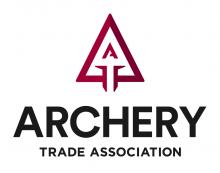
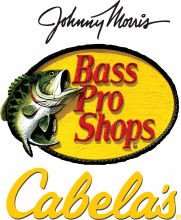
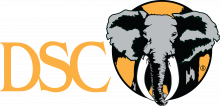

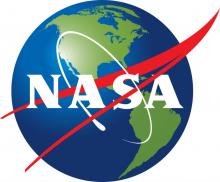

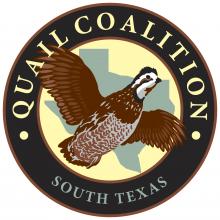
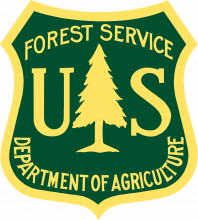
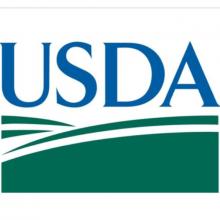
Bronze
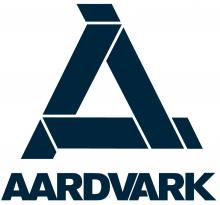
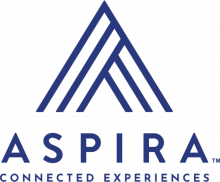
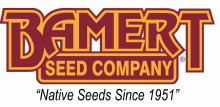
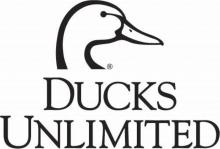



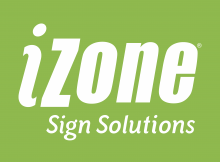


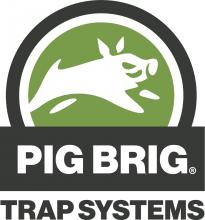


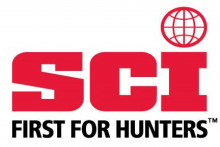
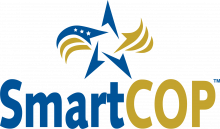
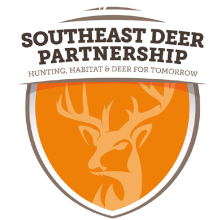
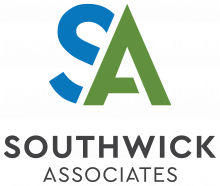
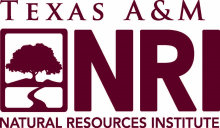
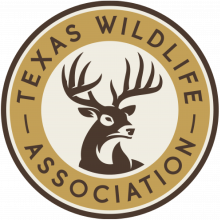




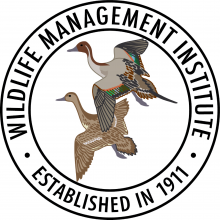
Special Event
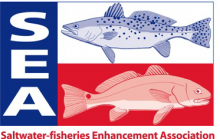
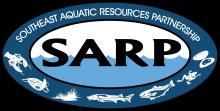
Sponsor & Exhibitor Opportunities
On behalf of the Southeastern Association of Fish & Wildlife Agencies (SEAFWA), we invite you to participate as a sponsor or exhibitor! The 2023 Annual Meeting will be held October 15-18, 2023 in Corpus Christi, Texas. We hope you will be able to join us!
Registration has closed; this event has passed.
About the Conference
The Annual Conference of the Southeastern Association of Fish and Wildlife Agencies is a forum for the exchange of ideas and critical information regarding the management and protection of fish and wildlife resources primarily in the southeast. The conference attracts over 500 representatives from state and federal agencies, citizen’s organizations, universities, and private wildlife research groups, fisheries and wildlife scientists, agency enforcement personnel, and other natural resource-related organizations.
Already Registered?
Thanks for signing up! View the Sponsor and Exhibitor Guide for important information to help you prepare for the Conference, and answers to frequently asked questions!
Questions About Exhibiting or Sponsoring?
Contact Karen Forbes at (802) 865-5202 or karen@delaneymeetingevent.com.
